SUMMARY
This is AI generated summarization, which may have errors. For context, always refer to the full article.
![[OPINION] Social media influencers and their ethical responsibility](https://www.rappler.com/tachyon/2021/09/tl-influencers-1.jpg)
Digital influencers are in a unique position to shape public opinion.
When social media actors with massive followers use their platforms to venture into political matters, they carry with them a huge burden. Whether or not they admit it, what they say and whom they feature can greatly shape the conversations ordinary people eventually carry out.
This point cannot be emphasized enough. Especially now.
The campaign season has begun and influencers, in the age of social media, are at the center of it.
In a society fractured by disinformation and hate, influencers cannot only be thinking about themselves, their brand, and their profits.
Their significance
We cannot deny the big role of social media in amplifying certain issues. Controversies that trend on Twitter, Facebook, or IG can feel like they are concerns of national importance.
This is especially the case among those whose main source of information is social media.
In 2019, SWS administered a national survey about news consumption. Apparently, even before the pandemic, Facebook was already the daily source of news for 21% of Filipinos. And even at that rate, Facebook has already trumped radio and newspaper as people’s daily news source.
Interestingly, the educated ones relied more on Facebook and other social media accounts for news. There’s an insight here. If fake news primarily spreads on Facebook, then their main consumers are in fact educated Filipinos.
In the report Architects of Networked Disinformation, Jonathan Corpus Ong and Jason Cabañes shed light on the burial of Ferdinand Marcos in the Libingan ng mga Bayani. Accompanying the events that led to it was an online campaign that called for national healing, unity, forgiveness, and moving on.
Digital influencers were at the heart of this positive message. They banked on Filipino religiosity and virtues of bayanihan. But in doing so, they evaded “discussions of reparations and justice for the victims of the Marcos regime.”
Unfortunately, this campaign is not yet over. In conversation with Toni Gonzaga, Bongbong Marcos has recently claimed that under the presidency of his father, Filipinos “were united as one…. And we’ve lost that a little bit…. I would like to restore that.”
Ethics
In another piece for Rappler, Gelo Gonzales has suggested that “Gonzaga doesn’t appear to be aware of the massive responsibility she carries, most especially with the election looming.” I agree with his assessment that as an interviewer, Gonzaga has “allowed Bongbong to get away with even more lies.”
I suspect that for her loyal followers, Toni Gonzaga was simply on brand. She has, after all, featured other political figures including Leni Robredo. So she is neutral.
And every interview, including the recent one with Bongbong Marcos, is heartfelt and intimate.
But Toni Gonzaga may have forgotten that she has an audience bigger than her loyal followers: the public. To be sure, celebrities and social media influencers may choose not to care about the rest of us. Toni Gonzaga, for one, has over 4 million subscribers, providing her with clout and a steady income stream.
What then can her critics do?
This is where ethics comes in. Influencers cannot think only about themselves or their support base alone. Nor must they give in to the seduction of profit and fame at the expense of other people.
As public figures, influencers are in their own ways community leaders. As Mark Fackler reminds us in his work on media ethics, communicators must endeavor to uphold mutual respect, human dignity, and nonviolence.
But his is not a sentimental appeal. To uphold human dignity is to arrest the perpetuation of injustice.
In fact, drawing on principles of communitarianism, Fackler even calls on media practitioners to reject “greed-hoarding impulses.”
No to neutrality
Influencers are not always powerful.
Influencers can only flex their social media muscles to the extent that they have followers. This is why authenticity matters. They need to be authentic to themselves, their brand, and their audience. The entire industry of influencer marketing necessarily relies on performing and assuring the audience of this authenticity. This is how credibility is asserted.
And once this credibility is in question, followers feel the responsibility to hold them accountable. Or simply unsubscribe.
In response, influencers can simply appeal to personal authenticity. In an earlier interview, Toni Gonzaga did exactly that. She insisted that “I have nothing to hide, I have nothing to defend, I have nothing to prove, I have nothing to explain to anybody because I know who I am deep inside.”
This, unfortunately, misses the point.
Influencers have a responsibility to be ethical. Toni Gonzaga and her many peers who will play a big role in the coming elections need to be reminded: their audience goes beyond their followers.
Neutrality is not a virtue. Not now, not ever. – Rappler.com
Jayeel Cornelio, PhD is a sociologist at the Ateneo de Manila University and a 2017 Outstanding Young Scientist of the National Academy of Science and Technology. Follow him on Twitter @jayeel_cornelio.
Add a comment
How does this make you feel?
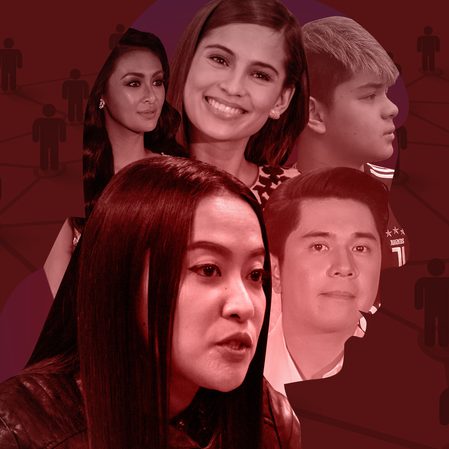
![[PODCAST] Mga artista at influencers na nagkakalat ng fake news, propaganda](https://www.rappler.com/tachyon/2021/03/newsbreak-beyond-the-stories-landscape-with-topic-celebrities.jpg?fit=449%2C449)
![[ANALYSIS] Consequences of distorting Marcos’ historical legacy on Youtube](https://www.rappler.com/tachyon/2021/07/TL-youtube-historical-revisionism-1280.jpg?fit=449%2C449)

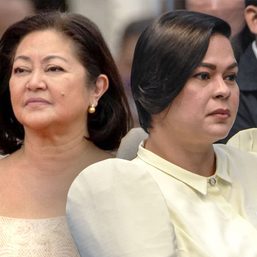
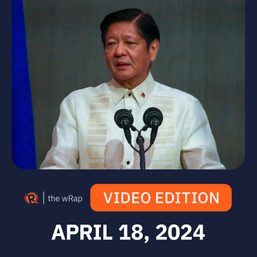
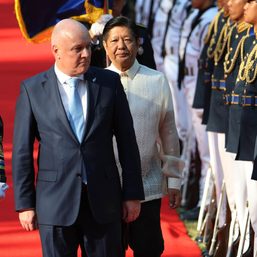
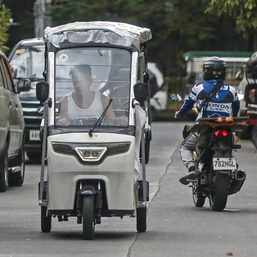
![[OPINION] Is the Philippines ‘semi-feudal,’ ‘backward capitalist,’ or neither?](https://www.rappler.com/tachyon/2023/12/TL-PH-semi-feudal-backward-capitalist-December-26-2023.jpg?resize=257%2C257&crop_strategy=attention)
![[OPINION] Are Filipinos really a happy people?](https://www.rappler.com/tachyon/2023/12/are-we-truly-happy-people-december-22-2023.jpg?resize=257%2C257&crop=438px%2C0px%2C1080px%2C1080px)
![[OPINION] Road rage and mimetic violence](https://www.rappler.com/tachyon/2023/09/tl-mimicry.jpg?resize=257%2C257&crop=255px%2C0px%2C720px%2C720px)
![[OPINION] Christ could be queer? On blasphemy](https://www.rappler.com/tachyon/2023/07/tl-blasphemy.jpg?resize=257%2C257&crop_strategy=attention)
![[OPINYON] Hanggang saan mananatili ang pising nagdudugtong sa magkakapamilya?](https://www.rappler.com/tachyon/2023/04/tl-family-ties.jpg?resize=257%2C257&crop=314px%2C0px%2C720px%2C720px)
There are no comments yet. Add your comment to start the conversation.